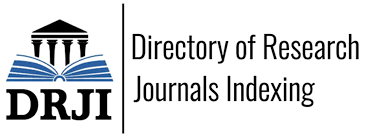- GOVERNING BODY
Publication Ethics and Malpractice Statement
The Indonesian Journal of Religion, Spirituality, and Humanity Publication Ethics and Malpractice Statement, derived primarily from COPE’s Best Practice Guidelines for Journal Editors, clarifies the ethical behaviour of all parties involved in the act of publishing an article in the journal, including the members of editorial board, editors, authors, and the publisher of the journal.
Ethical Guidelines for Journal Publication
The publication of articles in the peer-reviewed Indonesian Journal of Religion, Spirituality, and Humanity is an essential building block in the development of a coherent and respected body of scientific knowledge. It d the quality of the authors’ work and the institutions that support them. This statement on Publication Ethics and Malpractice Statement compromises the ethical guidelines for all parties involved in the act of publication: the author, the journal editor, the peer reviewer, the publisher, and the reader/society. Postgraduate Program of State Islamic University (UIN) Salatiga Indonesia, as the publisher, the editors, and members of the editorial board ofirectly reflects Indonesian Journal of Religion, Spirituality, and Humanity, take duties of guardianship over all stages of publishing seriously and recognize their ethical responsibilities.
There will be no processing fee entitled to the submission and the publication of selected articles in Indonesian Journal of Religion, Spirituality, and Humanity. The journal is also committed to ensure that advertising, reprinting, or other commercial revenue have no impact or influence on editorial decisions. In addition, Postgraduate Program of State Islamic University (UIN) Salatiga Indonesia, as the co-publisher, and the Editorial Board of the journal will assist in the communication with other journals and/or publishers where this is useful and necessary.
- Authorship and Contributorship Policies: Indonesian Journal of Religion, Spirituality, and Humanity emphasizes the need for clear authorship and contributorship guidelines to safeguard the ethical standards of academic publishing. These policies specify the criteria determining who qualifies as an author, ensuring that only those who have made substantial intellectual contributions to the research are adequately recognized. By establishing transparent rules for attributing credit, Indonesian Journal of Religion, Spirituality, and Humanity helps prevent disputes over authorship, foster accountability, and ensure that all contributors are fairly acknowledged for their role in producing the scholarly work.
- Complaints and Appeals Policies: The Indonesian Journal of Religion, Spirituality, and Humanity strives to uphold fairness and transparency by implementing detailed complaints and appeals policies. These procedures offer a structured pathway for authors, reviewers, or readers to raise concerns regarding the editorial process, peer review outcomes, or ethical misconduct. By providing a formal mechanism for resolving disputes, these policies enhance trust in the publication process, ensuring that all grievances are addressed promptly and equitably and reinforcing the Indonesian Journal of Religion, Spirituality, and Humanity's dedication to maintaining high ethical standards.
- Conflicts of Interest Policies: Indonesian Journal of Religion, Spirituality, and Humanity maintains the integrity of the peer review and publishing process through stringent conflicts of interest policies. These require all parties involved—authors, reviewers, and editors—to disclose any financial, professional, or personal interests that may affect their objectivity. Such transparency is critical in preventing biases from influencing research assessment, ensuring that published work remains credible and trustworthy. By enforcing these policies, Indonesian Journal of Religion, Spirituality, and Humanity protects the academic content's impartiality and reliability.
- Data Sharing and Reproducibility Policies: In line with promoting transparency and scientific rigor, the Indonesian Journal of Religion, Spirituality, and Humanity advocates for data sharing and reproducibility. These policies encourage authors to make their research data and methodologies publicly accessible, allowing others to verify findings and build upon them in future research. This reinforces the credibility of published work and fosters collaboration and innovation by making research more accessible and reproducible, ultimately accelerating scientific progress and enhancing trust in the research process.
- Ethical Oversight Policies: The Indonesian Journal of Religion, Spirituality, and Humanity is committed to ensuring that all research adheres to high ethical standards guided by comprehensive ethical oversight policies. These cover a range of ethical issues, such as guaranteeing informed consent from participants, safeguarding data privacy, and maintaining humane treatment in animal research. By enforcing strict ethical oversight, the Indonesian Journal of Religion, Spirituality, and Humanity demonstrates its commitment to responsible research practices, promoting public trust in scientific findings and ensuring that research is conducted with integrity and respect for all involved.
- Intellectual Property Policies: Academic Indonesian Journal of Religion, Spirituality, and Humanity provides clear intellectual property policies to protect authors' rights while encouraging knowledge sharing. These policies define the ownership and usage rights of published works, often balancing authors' intellectual property rights with the principles of open access. By clarifying these rights, the Indonesian Journal of Religion, Spirituality, and Humanity helps safeguard authors' contributions while promoting wider dissemination of research, enabling other scholars to access, build upon, and contribute to advancing knowledge.
- Post-Publication Discussions and Corrections Policies: To maintain the reliability and accuracy of the scholarly record, the Indonesian Journal of Religion, Spirituality, and Humanity should implement robust post-publication discussions and corrections policies. These policies offer a formal process for addressing errors, ambiguities, or concerns that may arise after an article has been published. By enabling ongoing scrutiny and correction of published work, the Indonesian Journal of Religion, Spirituality, and Humanity ensures that its content remains a trustworthy and evolving source of knowledge, reflecting new evidence and providing continuous improvements to the scientific discourse.








